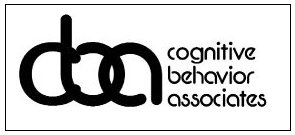Many people self-identify as introverts. While the exact definition of what introversion is can vary on a case-by-case basis, it is always a reflection of personal preference. By contrast, social anxiety is a mental health disorder that causes you to actually fear social situations. For someone with social anxiety, the symptoms they experience during social interactions can be intense.
Introversion Versus Social Anxiety: What’s the Difference?
Before we get into the details of what social anxiety is, it is helpful to discuss the difference between extroversion and introversion. Obviously, this is a false binary, and the reality of an individual’s lived experience may move up and down the spectrum depending on the people involved and the general setting.
With that said, there is one analogy that can help some people identify whether their personality tends to favor extroversion or introversion.
A Simple Analogy
Think of yourself as a cup of liquid. When you’re full to the brim, you feel energized, empowered, and relaxed. When the cup is empty, you feel drained. Every person has their own approaches and activities that they use to refill their cup when it begins to feel empty.
For introverts, those activities are more likely to include time spent alone or with only a few select people. For extroverts, those activities are more likely to include larger groups. Essentially, time away from other people fills up an introvert’s cup. And time with people is what fills up extroverts.
When Perceived Introversion Is Actually Social Anxiety
Having introverted tendencies is perfectly normal. It’s just a variation in your personality, but many self-identified introverts may be experiencing social anxiety even if they don’t realize it.
Social anxiety isn’t just a differentiation in the types of activities you enjoy. It’s an anxiety disorder with symptoms and treatment options. You may be experiencing social anxiety if you have ever experienced:
- Increased heart rate, nausea, or sweating in relation to a social gathering
- A feeling of rigidity
- An inability to make eye contact
- Fear in relation to meeting with new people or casual acquaintances
- Wanting to talk to people but struggling to do so
- Feeling embarrassed, self-conscious, or worrying that other people are judging you
Essentially, an introvert may choose to skip some social gatherings and be perfectly happy doing something on their own. When they want to talk to other people, it isn’t something they struggle with. Someone with social anxiety really wants to connect, really wants to socialize, but is unable to do so in the way that they would like to as a result of their condition.
Addressing Social Anxiety
If you suspect that you may have some variation of social anxiety, then it is important that you reach out to your local behavioral healthcare provider for social anxiety treatment in Los Angeles. With help, the condition is highly treatable. Mild to moderate cases usually don’t require any form of medication unless there are co-occurring disorders involved.
To get started, your specialist may suggest trying cognitive behavioral therapy in Los Angeles. This specific approach to behavioral therapy is designed to help you recognize and challenge the self-deprecating thoughts that are lending themselves to your mental health disorder.
Recognizing that Social Anxiety Is a Complex Issue
Of course, these thoughts are just part of the equation. Through cognitive behavioral therapy, your therapist will help you how to identify potential triggers and teach you how to develop healthier coping mechanisms.
You can’t fix social anxiety overnight. But you can gradually destroy its foundations. Which can lend you a healthier view of yourself and the ability to enjoy other people again.

